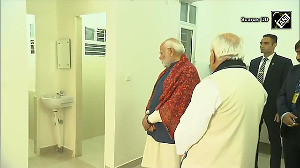The Indian pharmaceutical market is forecasted to grow at an estimated CAGR of 16% between 2010 and 2015 and cross USD 20 billion. It is projected to be the third largest global pharmaceuticals market in terms of the incremental growth. The increase in health awareness and higher prevalence of lifestyle diseases is resulting in greater demand for pharmaceutical products in India. Among the therapeutic areas, gastrointestinal (GI) and diabetes would continue to hold the large market share of 25%. Also, the Cardiovascular and Oncology at expected CAGRs of 16% and 15% respectively, would register higher growth over the next five years.
 The previous not specifically address any concerns. There was marginal increase in Excise duty on formulations from 5 percent to 6 percent and increase in excise duty from 10% to 12% in the previous budget.
The previous not specifically address any concerns. There was marginal increase in Excise duty on formulations from 5 percent to 6 percent and increase in excise duty from 10% to 12% in the previous budget.
All expenditure related to research should be made eligible for weighted deduction
A weighted deduction @ 200% is allowed on in-house research & development expenditure incurred by companies engaged in the business of biotechnology or manufacture or production of specified goods. The pharmaceutical research and development is very expensive and time consuming as compared to other industrial research, on account of regulatory requirements of safety, efficacy and quality. The current provisions for deduction u/s 35(2AB) are restrictive in nature, so as to cover only expenditure incidental to research carried on at the in-house R&D facility.
Some of the activities though directly related to research and development are not eligible for weighted deduction e.g. clinical trials undertaken on patients in hospitals, since the same are carried outside the approved R&D facility. All expenditure related to research carried on in the in-house facility i.e. clinical trials, bioequivalence studies, regulatory and patent approvals should be eligible for weighted deduction, even if these activities are carried outside the approved R&D facility including overseas expenditure.
Weighted deduction to an approved R &D company be extended from 125% to 175%
Vide Finance Act 2010, the percentage of weighted deduction allowable u/s 35(2AA) on sponsored scientific research undertaken through an approved National Laboratory, University, Indian Institute of Technology and other specified institutions was increased from 125% to 200%. Similarly, the percentage of weighted deduction u/s 35(1)(ii) on contributions made to approved scientific research associations, University, College or other institutions was also increased from 125% to 175%.
However, similar increase in the percentage of weighted deduction on contributions made u/s 35(1)(iia) to an exclusive R&D company approved by the specified authority, has not been allowed. It is therefore, suggested that the aforesaid anomaly should be removed and the percentage of weighted deduction on contributions made to an exclusive R&D company for carrying research and development should be increased from 125% to 175%.
Direct Taxes:
- In order to facilitate and encourage Scientific Research, all expenses of revenue nature incurred prior to Commencement of business, should be allowed as deduction in the year in which business has commenced.
- The Government must create a budget through which 50% of the total income tax paid by a company in the last 10 years can be paid back or at least as a loan to an R&D organization for 20 years at a nominal rate of interest.
Service Tax on Clinical Trials of Drugs
The following services in relation to Clinical Trials of Drugs are exempted from the levy of service tax vide Sr.No.7 of Notification 25/2012-ST dated 20-06-2012, namely - The Services by way of technical testing or analysis of newly developed drugs, including vaccines and herbal remedies on human participants by a clinical research organization approved to conduct clinical trials by the Drug Controller General of India.
As may be observed the exemption is applicable for clinical research organizations (CRO) if the CRO is approved specifically by the Drug Controller General of India (DCGI). However, the DCGI does not approve any CROs; in fact there is no mechanism in place for approving a CRO per se by the DCGI.
It is suggested that the aforesaid entry No.7 in the said Notification may be amended so that the service tax exemption is applicable to the clinical trial process which is approved by the DCGI.
Excise Duty on Bulk Drugs
- The rate of Central Excise duty on bulk drugs which is 10% may be brought down at par with drug formulations which is 5%.
- Exemption Excise Duty for Generic Drugs - At present branded and generic medicines are subjected to the same rate of excise duty. In order to promote generic medicines, as per Government's policy, it is desirable that medicines sold under the monogram of any pharmacopoeia (generic -without any brand name) may be exempted from the levy of central excise duty.
- Central Sales Tax - Life saving drugs, life saving medical devices and critical diagnostic kits may be exempted from CST.
Custom duty
- The life saving drugs should be exempted from custom duty from the current 5%.
- The CVD of 5% on import of specified drugs/vaccines and health supplements should be treated at par with 1% on local manufacturers.
Analyst Expectations:
We expect exemption of custom duty for the Lifesaving drugs like Antibiotics, Anticancer, and Anti-HIV drugs. Also, any positive steps towards the R&D weighted deduction and tax related benefits will help the industry. However, the total tax rate for pharma industry to increase if the GST will be implemented but this event expected to be highly unlikely this time. Overall there will be no significant booster doses for the Industry.
Scrip’s to Watch:
Sun Pharmaceuticals, Glenmark Pharmaceuticals, Biocon and IPCA Labs
Outlook:
The Indian Pharmaceuticals industry is growing at healthy pace despite the few challenges in the domestic market. There is continued uncertainty over the New National Drug Pricing policy, will have moderate impact on Indian Pharmaceutical players. Anything on GST will be closely observed by the industry and any minor steps will not have the substantial impact on the industry.











 © 2025 Rediff.com -
© 2025 Rediff.com -